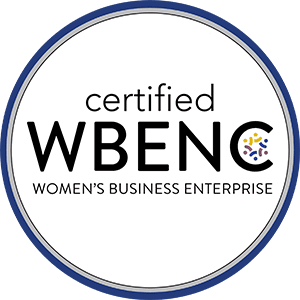5 Tips for Launching Your Talent Management Strategy
Mar 19th, 2016
In today’s challenging market, it’s imperative to ensure you’re attracting, recruiting, and retaining the most talented individuals in your industry. Your talent management strategy will be influential in paving the way for future success and setting your team up for tomorrow’s challenges. The goal of a successful strategy is knowing where and how to attract top talent, and then knowing how to retain high performing employees. In the ever changing business landscape, Talent management is the process of bridging the gap between your current employee population and your need for advanced thinkers and leaders.
A successful talent management strategy will take time and a dedicated team before you see results. Getting your strategy off the ground and building momentum may seem overwhelming, but remember that it is always easier (and more manageable) to start smaller and build your program from there. Here are some questions aimed at getting you started.
1. Are you attending industry specific networking events?
One of the easiest (and often cheapest) ways to begin building not only your pipeline of potential talent, but also your brand, is to start networking and making your organization’s name more visible. Building a reputation in the market can be accomplished in a number of different ways, but one of the most influential is face to face networking. Join a local industry-related chapter and start attending events that pique your interest. Make it a monthly goal to attend various events to get your organization ahead of the competition, and get you in front of potential employees, clients, and other constituents for your business.
2. Have you developed an internship program for your organization?
The benefits of establishing a robust internship program within your organization extend far beyond getting your organization’s brand in front of the next generation. A successful internship program can be a tremendously beneficial way for employers to develop a strong pipeline of talent for future needs. Remember to start off with achievable goals. Identify local programs and universities where it would make sense to market your brand and develop specific marketing brochures to highlight your organization. Put together a team of individuals to spearhead this effort and get it off the ground. Today’s learners are tomorrow’s leaders, and managing and encouraging them appropriately is a necessity. Managing future talent is just as important as managing the current talent within your organization.
3. Do you offer a Mentor/Mentee program?
Often times these are the most valuable relationships within an organization because of their informality. Try pairing up individuals across different levels within the organization and where necessary, across different departments. Creating a new relationship can open many doors in an employee’s future with the organization in addition to fostering a team-oriented environment. Remember to keep these informal BECAUSE…. Encourage employees to meet with their mentor or mentee as they deem necessary.
4. Is your interview process aligned with your organization’s mission and values?
If there is a lack of consistency between these two, it’s possible you’re attracting the wrong type of candidates. To setup your organization for future growth and recruitment needs, make sure the core fundamentals (like the questions you ask) are all in-line from the start. Ask behavioral based interview questions to dig deeper into the candidate’s motivations. You need a solid structure and plan intact to differentiate between attracting a strong candidate and a high-potential ROCK STAR who is capable of taking your organization to the next level.
5. Have you identified high performing employees who could be in line for management opportunities in the future?
If so, do you have a specific process in place which outlines the succession plan of the organization? A large part of an organization’s talent management strategy is identifying a succession plan and the subsequent implementation of that plan. Once high-performing employees have been identified, be sure to set them up for future success by encouraging their attendance at various leadership development and industry-specific training seminars. The overall goal is to set an employee up to become a vital part of an organization, and eventually take over in a more crucial role. Allowing these employees a chance to hone their leadership skills will ensure you have the next generation of leaders prepped and ready to tackle future challenges and opportunities.







